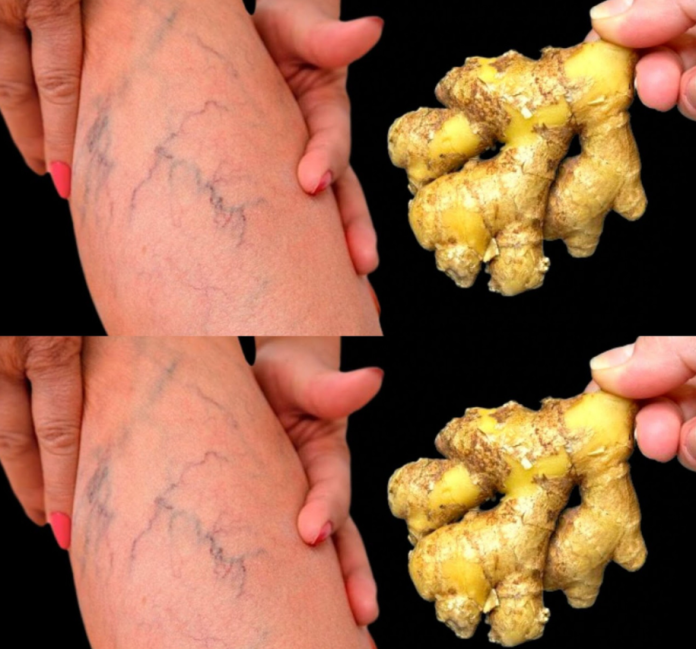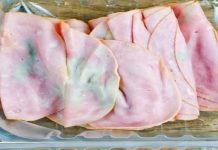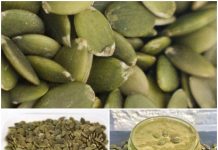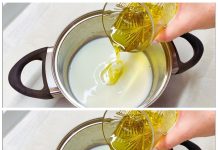Varicose veins are a common condition that many people experience as they age. These swollen, twisted veins, typically found in the legs, can be unsightly and sometimes uncomfortable. While they are usually harmless, varicose veins can lead to discomfort and, in some cases, more serious health concerns. Fortunately, there are natural remedies that can help alleviate the symptoms and improve the appearance of varicose veins.
In this article, we’ll explore some effective and natural solutions for managing varicose veins, helping you maintain healthier, more comfortable legs without relying on invasive treatments.
What Causes Varicose Veins?
Before diving into the remedies, it’s important to understand what causes varicose veins in the first place. Varicose veins occur when the veins in your legs become enlarged and overfilled with blood. This happens when the valves in your veins, which are responsible for directing blood flow back to the heart, weaken or become damaged. As a result, blood can pool in the veins, causing them to bulge and twist.
Some factors that increase the risk of developing varicose veins include:
- Aging: As you age, the valves in your veins can weaken, leading to the formation of varicose veins.
- Genetics: If you have a family history of varicose veins, you may be more likely to develop them.
- Pregnancy: During pregnancy, the increased volume of blood and pressure on the veins can lead to varicose veins.
- Prolonged standing or sitting: Jobs or lifestyles that require long periods of standing or sitting can contribute to the development of varicose veins.
Natural Remedies to Relieve Varicose Veins
While medical treatments such as surgery or laser therapy are available for varicose veins, many people prefer to explore natural remedies first. These remedies can help reduce symptoms, improve circulation, and even prevent the condition from worsening. Here are some of the most effective natural treatments for varicose veins:
1. Exercise to Improve Circulation
One of the best ways to manage varicose veins naturally is by staying active. Exercise helps improve blood circulation, which can prevent blood from pooling in the veins. Low-impact activities such as walking, cycling, or swimming are ideal for promoting circulation without putting too much strain on your legs.
Regular exercise also helps strengthen the muscles in your legs, which can support better blood flow. By keeping the muscles around your veins active, you help the veins push blood back toward the heart more effectively.
2. Elevate Your Legs
Elevating your legs is a simple yet effective way to relieve pressure on the veins and encourage blood to flow back toward the heart. Try to elevate your legs above heart level for 15-20 minutes several times a day. This can be especially helpful after long periods of sitting or standing.
You can also prop your legs up on pillows while lying down to promote better circulation and reduce swelling. Elevating your legs regularly can prevent the symptoms of varicose veins from worsening.
3. Compression Stockings
Compression stockings are a popular remedy for varicose veins, and for good reason. These specially designed stockings apply gentle pressure to your legs, helping the veins move blood more efficiently. They also reduce swelling and discomfort associated with varicose veins.
You can find compression stockings at most pharmacies, and they come in various levels of compression. For mild cases of varicose veins, over-the-counter stockings may be sufficient. If you have more severe symptoms, you might need to consult a doctor for prescription-grade stockings.
4. Herbal Remedies
Several herbs are known to support vein health and may help reduce the symptoms of varicose veins. Some of the most commonly used herbs for this purpose include:
- Horse Chestnut Extract: Horse chestnut is a popular herbal remedy for varicose veins. It contains a compound called aescin, which helps improve circulation and reduce inflammation. Studies have shown that horse chestnut extract can help reduce leg pain, swelling, and the appearance of varicose veins.
- Gotu Kola: This herb has long been used in traditional medicine to support blood vessel health. Gotu kola is believed to strengthen the walls of veins and capillaries, reducing the risk of varicose veins worsening.
- Grape Seed Extract: Rich in antioxidants, grape seed extract helps protect the veins and improve blood flow. It’s particularly effective in reducing leg swelling and promoting vein health.
Before using any herbal supplements, it’s important to consult with a healthcare professional, especially if you are taking other medications or have underlying health conditions.
5. Dietary Changes to Support Vein Health
Eating a balanced diet that supports vein health can make a big difference in managing varicose veins. Focus on foods that promote circulation, reduce inflammation, and provide essential nutrients for your veins. Here are some dietary tips to follow:
- Eat fiber-rich foods: A diet high in fiber helps prevent constipation, which can put extra pressure on your veins. Include plenty of fruits, vegetables, whole grains, and legumes in your diet.
- Consume antioxidant-rich foods: Antioxidants, particularly vitamin C and vitamin E, help strengthen the veins and reduce inflammation. Citrus fruits, berries, nuts, and seeds are excellent sources of antioxidants.
- Stay hydrated: Proper hydration is essential for circulation. Drinking enough water throughout the day can help prevent blood from thickening and improve overall blood flow.
6. Apple Cider Vinegar
Apple cider vinegar is often touted as a natural remedy for a variety of health issues, and varicose veins are no exception. Apple cider vinegar is thought to improve blood circulation and reduce swelling, making it a popular choice for those dealing with varicose veins.
To use apple cider vinegar for varicose veins, soak a cloth in the vinegar and wrap it around the affected area for 15-20 minutes. Some people also take diluted apple cider vinegar orally, but it’s important to consult with a healthcare provider before ingesting it regularly.
7. Massage with Essential Oils
Gently massaging the legs can improve circulation and reduce the discomfort associated with varicose veins. Using essential oils during the massage can enhance the benefits, as many oils have properties that support circulation and reduce inflammation.
Some essential oils that may be helpful for varicose veins include:
- Cypress oil: Known for its circulatory benefits, cypress oil can be massaged into the skin to help improve blood flow and reduce swelling.
- Lavender oil: Lavender oil has anti-inflammatory and calming properties, making it a good option for reducing discomfort and promoting relaxation.
- Helichrysum oil: This oil is often used to reduce inflammation and promote healing, making it beneficial for varicose veins.
Conclusion: Natural Relief for Varicose Veins
While varicose veins can be uncomfortable and unsightly, there are many natural remedies that can help manage symptoms and improve your vein health. By incorporating regular exercise, elevating your legs, and using natural remedies like herbal supplements, essential oils, and dietary changes, you can support healthier veins and reduce the discomfort associated with varicose veins.
Always consult with a healthcare professional before trying new treatments, especially if your varicose veins are severe or causing significant discomfort. With the right approach, you can keep your veins healthy and improve your quality of life.
source of the picture : thegreenlife.me










